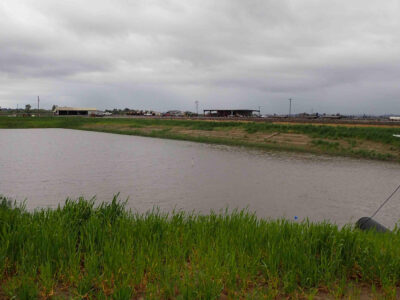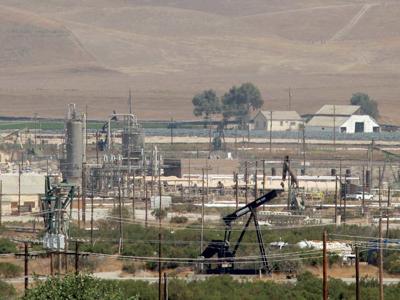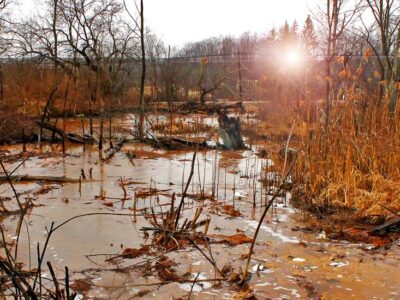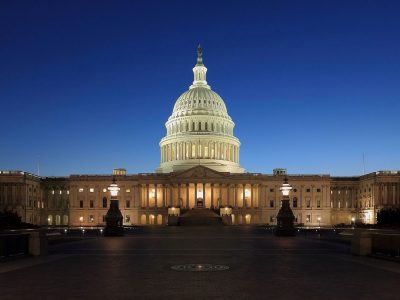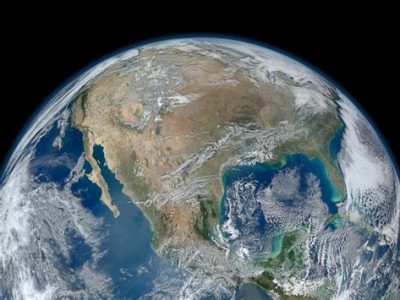Environmental Science
Recharge net metering (ReNeM) provides win-win-win for groundwater agency, landowners, & sustainable groundwater management
Nature Water publication showcases the economics of a novel groundwater recharge incentive structure
By Molly Bruce, Luke Sherman, Ellen Bruno, Andrew T. Fisher, & Michael Kiparsky An insidious issue has been growing along the Central Coast and throughout the state of California for decades: groundwater overdraft. In response to this growing threat and 2014 legislation designed to put an end to chronic overdraft, many basins have identified managed …
CONTINUE READINGNo, There’s No Scientific Conspiracy About Climate Change
Anyone who thinks otherwise has never met a real live academic. We can barely conspire about where to eat lunch.
Among the host of conspiracy theories out there, a perennial one depicts climate science as a global hoax perpetuated by scientists. There are thousands of climate scientists around the world, which is an awful lot of people for a secret conspiracy. But even if there were only forty or fifty, a successful conspiracy of any …
Continue reading “No, There’s No Scientific Conspiracy About Climate Change”
CONTINUE READINGCalifornia Supreme Court Rules County Ordinance Limiting Oil & Gas Development Preempted by State Law
Court Decision May Well Be Correct as a Matter of Law, But Represents Outdated & Unsound Public Policy
Last week, the California Supreme Court unanimously ruled that a local initiative measure that would have imposed severe restrictions on oil and gas development in Monterey County is preempted by state law and therefore invalid. The decision came in the case of Chevron U.S.A., Inc. v. County of Monterey. The Supreme Court’s ruling was predictable, …
CONTINUE READINGDeregulation, Normal Accidents, and the Airborne Toxic Event
What can we learn from the East Palestine train wreck?
Source: Wikimedia Commons The East Palestine train derailment is the story that won’t go away. Images of enraged residents shouting at company executives and government officials about the inadequacy of the response remind us all that across our vast industrial economy accidents of one sort or another are always waiting to happen while private firms …
Continue reading “Deregulation, Normal Accidents, and the Airborne Toxic Event”
CONTINUE READINGCutting 290,000 Tons of Water Pollution a Year, One Coal Plant at a Time
Coal is a dirty fuel. It’s not just air pollution or climate change.
EPA proposed new regulations next week to reduce the water pollution impacts of coal-fired power plants. As EPA regulations go, these count as fairly minor. They got a bit of news coverage in coal country and industry publications. But they will eliminate the discharge of thousands of tons of pollutants, including a lot of metals …
Continue reading “Cutting 290,000 Tons of Water Pollution a Year, One Coal Plant at a Time”
CONTINUE READINGThe Great-Great-Grandmother of Climate Science
Herein of the now-forgotten woman who discovered the warming effect of CO2.
The first climate science ever published was in 1856 by Eunice Newton Foote, who discovered that CO2 and water vapor trapped the sun’s heat. Her paper was read at the annual meeting of the American Association for the Advancement of Science. That paper, along with another paper of hers, were the only physics papers by …
Continue reading “The Great-Great-Grandmother of Climate Science”
CONTINUE READINGShould There Be a ‘Non-Use’ Agreement on Solar Geoengineering?
Why I signed the call for a non-use agreement, and what that might mean for research.
Although I’m a newbie at the Emmett Institute, I have been working on geoengineering for a decade now. I have heard countless arguments over whether and how solar geoengineering could be useful in the struggle to manage climate change. I have seen deeply misleading claims by both its supporters and detractors, many trying to coopt …
Continue reading “Should There Be a ‘Non-Use’ Agreement on Solar Geoengineering?”
CONTINUE READINGThis Climate Debate is a lot of Hot Air
Geoengineering is having a moment. But much of the media coverage is failing to capture the actual debate.
We’ve been hearing a lot lately about geoengineering – the various scientific theories and governance ideas that could eventually lead to technological interventions to help cool the planet. A weather balloon stunt in Mexico by a small startup called Make Sunsets generated a lot of hot headlines, even though that solar geoengineering “experiment” was so …
Continue reading “This Climate Debate is a lot of Hot Air”
CONTINUE READINGIs Bipartisanship Possible?
It’s not easy in today’s polarized politics. But maybe it’s not completely off the table.
We are now, as so often, in a time of divided government. That makes bipartisan cooperation necessary. We are also in a time of hyper-partisanship. The problem may be compounded by the concessions made by McCarthy to the far Right in order to become Speaker. Nevertheless, there may be some opportunities for cooperation across party …
Continue reading “Is Bipartisanship Possible?”
CONTINUE READINGA Dangerous Disruption
A startup firm proposes to sell dubious carbon credits from stratospheric aerosol injection
Last week, MIT’s “Technology Review” reported that a small startup firm is proposing to spray reflective aerosols in the stratosphere commercially as a climate corrective. (Stratospheric Aerosol Injection or SAI.) Previously announced online in the Google Geoengineering Group, the firm is small and new, operating with a claimed total of $750K of venture financing. They …
Continue reading “A Dangerous Disruption”
CONTINUE READING



